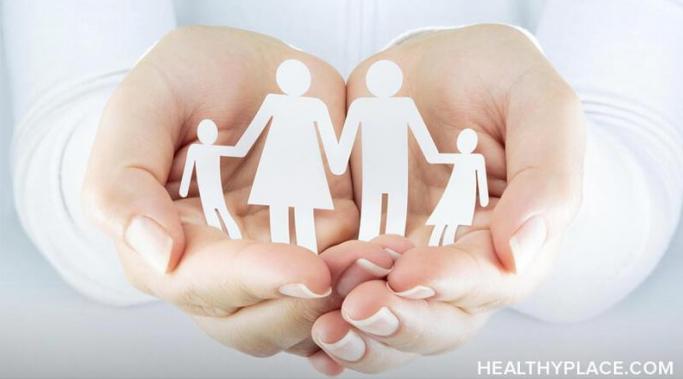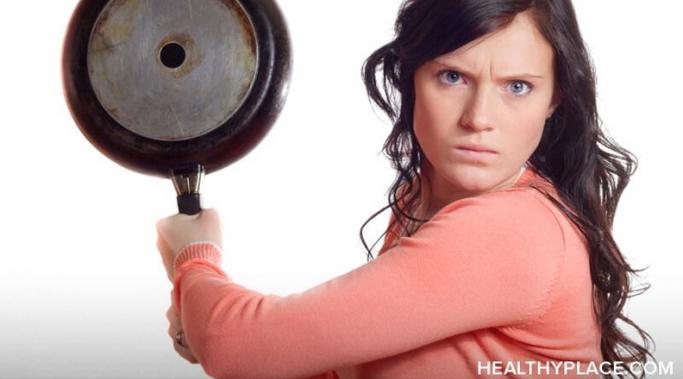Blogs
Fat. Stupid. Ugly. Weak. Not good enough.
Self-hatred is a core feeling in many people suffering from eating disorders. Including me.
I've been having an internal war with myself today.
I'm too fat. I shouldn't eat. You don't deserve to eat. Don't be so weak...
My head hurt. My stomach hurt. Even my brain hurt. Eventually I give in, starving. Then...
You're a fat, disgusting pig.
When people realize they have a mental illness like bipolar disorder or schizophrenia, one of the first feelings they have is fear. And there’s a lot to be afraid of. There are the treatment, doctors, symptoms, side effects and then there’s the illness itself. It’s completely reasonable to feel scared in that situation.
And in that moment, or possibly in a moment shortly thereafter, the fear of abandonment becomes a reality. A very reasonable and realistic fear is that people will abandon you because of the mental illness.
I'm easily irritated right now. I'm easily irritated by the noise, the dog drool, and the pissy cat. Yes, I have a mental illness or two, but I'm not irritated because I'm mentally ill. But I am irritated, okay? And again, not because I live with a mental illness!
I have Dissociative Identity Disorder (DID) and Post-Traumatic Stress Disorder (PTSD), trauma disorders that are both: 1) responses to overwhelming stress, and 2) sources of continuing high stress. Cortisol is an adrenal hormone our bodies create to help us cope with extreme stress, physical and emotional. I began researching the signs and symptoms of cortisol imbalance when it occurred to me that living with DID and PTSD (or any chronically, very-high-stress condition or situation) would logically mean living with elevated levels of cortisol. And whaddyaknow? The top five symptoms are also the top five most frustrating, debilitating, and chronic issues in my life.
If you’re anything like me, and I hope for your sake and the sake of your children that you are not, you’ve wrestled with your mental illness secure in the certainty that society cared about you only to the extent that it fervently wished you would excuse yourself from the room and be scarce in the way voles are scarce; that is to say, demonstrate your respect for “nice” people by remaining invisible to them.
Frankly, there is something soothing about looking at the ladder which leads up and up to society’s golden promises only to realize that the first few rungs of yours have been sawed in half and you won’t even have a chance to fall off, much less climb. Soothing because, in life, it is comforting to know where one stands, or, as is the case here, doesn’t stand. If you aren’t shocked and surprised by every disrespectful snub and injustice, you cannot be disappointed and consequently, will harbor no resentment. (To put it differently, it is the illusion of a just world that causes heartache, not the sting of an unjust one.)
When deciding on ending a relationship, the first question we ask ourselves is: How do I know when enough is enough? Someone very special and beautiful asked me that question this week.
In our culture, we are faced with all kinds of messages about relationships: see the good in people, relationships take work, rise above, and don't have too many expectations. Then, don't put up with anyone's disrespect, take care of yourself, set limits, leave abuse. These messages convolute all our decisions on how to set boundaries in relationships or know when it is right for us to leave them. We don't know who to blame, us or them. Add to it worry and fear about being alone, or being abandoned, or about other people judging you, and it becomes a maze to wade through.
What is the authentic you? When people say you're not being real, they're telling you that you're inauthentic. Let me give you an example to clarify the concept of the "authentic you."
What's it like inside the depressed mind, you ask?
Sometimes, with depression, we just want to pull the covers up over our heads and wish away the pain. Sometimes we want help but don't know what help to ask for. Sometimes, we don't even know what we need. Sometimes, asking for help is the hardest thing to do.
I had to cope with nightmares last night, nightmares related to a traumatic event I went through. That's one of the downsides of borderline personality disorder--the nightmares can leave you shaken up for the entire day. But there's good news: there are ways to cope with nightmares and night terrors and not let them get to you. Three such ways are thought stopping, rewriting the nightmare, and understanding what the dream means.
There are many factors that contribute to maintaining abstinence from drugs and alcohol. If you have been in addiction treatment or around 12-Step meetings, then undoubtedly you have heard many of these already. But they bear repeating. In fact, you can't hear them enough.










I believe she will only be able to rid herself of her demons, and hopefully her BPD as well, when she's ready to confront the abuse of her father. If she can put the blame where it belongs, she may stop projecting that victim/perpetrator cycle on the present men in her life. These demons are a metaphor for the purgatory she has created for herself. That reality has consequences in the real world, but it need not be real in the tangible sense. Exorcising her demons will require the expenditure of real physical energy and probably the destruction of aspects of her personality. If this ever happens, and it's possible but not probable, then these demons will evaporate. They are only as real as one's personality is real. In short, reality is not the question, it's what you make of the things you feel to be real.